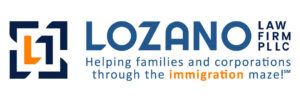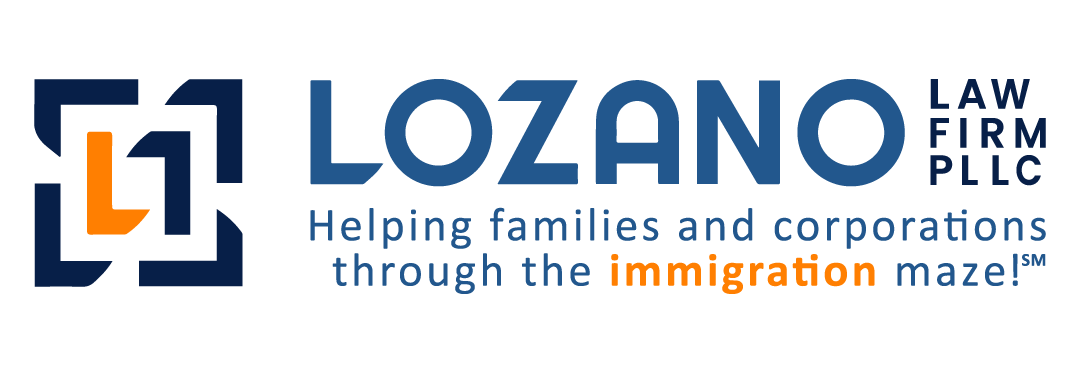Are you a religious worker aiming to practice your vocation in the United States? The R-1 Visa might be your gateway to fulfilling this spiritual calling. This Visa enriches the nation’s devotional landscape by offering a legal pathway for you to live and work. It helps to facilitate cultural exchange and supports the diversity of faith-based practices in the country.
Securing this Visa requires navigating eligibility criteria, the application process, and document preparation. Discover the benefits of seeking professional legal assistance in obtaining the legal document. They can give you insight into the Religious Visa and its intricacies.

What Is An R-1 Visa?
An R-1 non-immigrant Visa is needed for individuals who want to temporarily work in religious facilities in the United States. This Visa helps qualified organizations maintain their educational, humanitarian, and spiritual missions by employing workers outside the country.
This Religious Worker Visa grants qualified beneficiaries an initial admission period of up to 30 months. In this category, you can extend your stay to a maximum of five years.
Although temporary, this Visa can allow you to transition from this nonimmigrant status to the EB-4 or Special Immigrant Religious Workers category for permanent residency. This status is designated for “Special Immigrants,” which includes a diverse group of individuals, including religious workers.
Moreover, if you obtain this religious worker status, your spouse and unmarried children under 21 may apply for the R-2 or dependent Visa. This category allows such family members to accompany you to reside in the United States for a specific period.
With the compass set for navigating your Religious Worker Visa, the next step is to discover what qualifies you as a candidate. Knowing your qualifications is essential for fulfilling your spiritual duties successfully in the United States.
How Do You Qualify For Religious Workers Visa?
To be an official religious worker in the United States, you must meet specific qualifications. First, you must be a member of a recognized faith-based denomination and have been active for at least two years before applying. Your employing organization must also be a non-profit entity in the country with a legitimate tax-exempt status. This ensures that the job offer is rooted in genuine spiritual practice.
Moreover, your role must be a bona fide religious occupation, such as leading worship, conducting devotional instruction, or providing spiritual guidance. You must be consistently involved in the sacred service of your country and continue the same job in the United States. In addition, you should work an average of 20 hours per week.
Although you may believe you meet these qualifications, it is advisable to have a skilled immigration attorney guide you. Beyond providing insights on Visa eligibility, they can assist you throughout the application process.
What Is The Application Process?
As a religious worker, you prioritize sacred service with utmost value and urgency. This entails following an orderly process and adhering to regulations set by immigration authorities. The application comprises the following critical steps.
Filing Of Form I-129
Your journey begins with filing Form I-129, Petition for a Nonimmigrant Worker, by your U.S. employers or religious organizations. This form serves as a formal request to the U.S. Citizenship and Immigration Services (USCIS). You must accompany it with comprehensive evidence demonstrating the nature of your religious organization and the bona fide status of your work.
On-Site Inspection
After submitting Form I-129, USCIS may conduct an on-site evaluation. This inspection may occur before or after the final decision is made on the petition. It is a crucial step in your Visa application since it helps verify the legitimacy of the petitioning organization and the details provided in the request.
Your employer or organization must state the physical address where you will work. The USCIS typically verifies your working hours, compensation, and duties during assessment. Doing so confirms that your employer is actively operating and can financially support you as their worker.
The on-site inspection can significantly influence the USCIS’s decision-making process. It can lead to either your application’s approval or the identification of issues that you need to resolve for further evaluation.
Post-Petition Approval
You can apply for the R-1 permit at a U.S. embassy or consulate in your home country upon approval. The process involves personal interviews, fingerprinting, and additional documentation, culminating in the final decision regarding your application. Successfully navigating this phase is crucial. It represents your final hurdle before obtaining the Visa that allows you to embark on your religious mission.
However, you might wonder what precisely ensures your application success. The answer lies in the proofs you provide to back up your Visa request. As mentioned, the petition must include supporting documents. What exactly do these entail?
What Supporting Documents Should You Provide?
Providing evidentiary documents is a critical phase in your Visa process. These papers affirm the claims made in your initial petition and serve as the backbone of your application. They prove the legitimacy of the religious organization and your role.
Proof Of Tax-Exempt Status
One vital document required is proof of the religious organization’s tax-exempt status. This establishes the institution’s nonprofit nature, which requires a Religious Working Visa. The Internal Revenue Service (IRS) will confirm the organization’s tax-exempt status or a similar nonprofit designation.
This document is important to ensure that the organization adheres to the legal and operational standards expected of religious entities. Also, it helps prevent abuse of this Visa program by guaranteeing that only legitimate institutions can sponsor foreign religious employees.
Evidence Of Self-Support
Another essential piece of documentation is proof of salaried or non-salaried compensation, also known as evidence of self-support. If you are a compensated worker, this document shows your religious organization’s regular wage. Typically, it includes pay stubs, financial statements, or a formal employment contract.
However, if you are a non-salaried worker, you must provide documents that prove how you will support yourself during your stay in the United States. It includes personal or organizational financial statements that depict the provision of room, board, and other living expenses.
Self-support documents are necessary if you do not receive direct financial support from your employers or religious institutions. However, you must have personal funds or other means to support yourself during your stay in the United States. Asset documentation, bank statements, or other financial records showing your financial abilities to sustain yourself are necessary.
Proof Of Denominational Membership
Lastly, proof of denominational membership is critical in applying for a Religious Working Visa. It confirms that you have been a member of the spiritual denomination for at least two years before filing your request. You can show membership records, letters from higher officials, or other documents verifying your long-standing relationship with your spiritual community.
These documents demonstrate your commitment and genuine connection to the religious institution. They should be verifiable and come from credible sources within your spiritual institution. Furthermore, the proof of denominational membership should be consistent with the information in the petition to avoid delays or denials.
With the complexities of providing the appropriate documents, you might ask, “Is there a way to streamline the process?” This is where seeking legal assistance comes into play. It turns potential pitfalls into a smooth path toward your Visa approval.
Seek The Help Of Lozano Law Firm
Seeking assistance from Lozano Law Firm when navigating your Visa process can be a game-changer. Given the complex nature of Religious Visas, working with a team of reputable Visa attorneys is a blessing for your spiritual work.
These immigration attorneys understand the value you put in your work while they give you support on legal matters. Their experience is invaluable in crafting a compelling Visa application that meets every criterion and withstands immigration authorities’ scrutiny.
Partnering with the Lozano Law Firm ensures that your application reflects the unique aspects of your religious work and affiliation. They also help gather and prepare the necessary evidentiary documents to strengthen your petition. Their guidance guarantees you are well-prepared and confident, enhancing the possibility of a successful Visa application.
Given these considerations, seeking guidance from legal professionals when applying for a Religious Worker Visa is prudent. Doing so not only eases the burden of the application process but also enhances your chances of success.
Summary
Obtaining a Religious Working Visa involves a thorough process that includes proving eligibility, navigating application procedures, and compiling essential documents. The journey is complex, with specific requirements for tax-exempt status, compensation proof, and denominational membership. Therefore, understanding these steps with the help of a skilled immigration attorney is vital.
Considering the intricacies of the process, pursuing assistance from Lozano Law Firm becomes indispensable. From personalized guidance to handling unforeseen challenges, the lawyers provide invaluable support. With their guidance, confidently navigate the intricate legal landscape of your Visa journey.

 Thank you for contacting us. Please complete this form and one of our team members will be in touch with you soon.
Thank you for contacting us. Please complete this form and one of our team members will be in touch with you soon.


